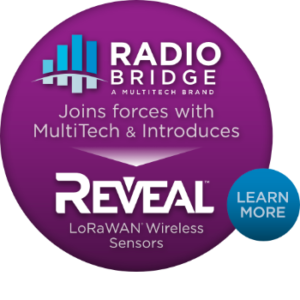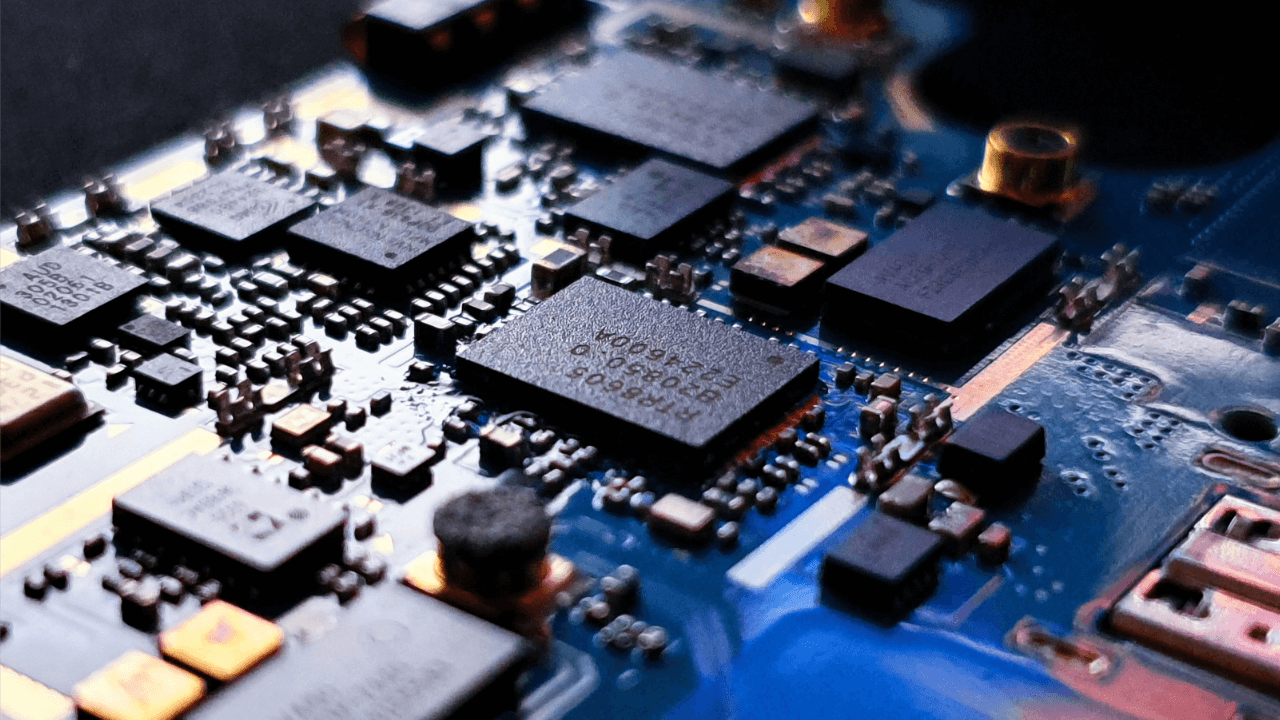
LoRa® has emerged as the leading standard around the world for wireless IoT deployments. The technology uses a chirp spread spectrum modulation scheme to enable long-distance, low-power data transmission across large networks through noisy environments.
On top of LoRa is the LoRaWAN® protocol, which is essential for building and scaling next-gen IoT networks consisting of hundreds or thousands of smart devices. Operating a LoRaWAN network requires a LoRaWAN network server that can manage gateways and facilitate sensor communication over the cloud.
LoRaWAN network servers are essential to IoT solutions for a number of reasons. First, they manage all endpoints and gateways that are dispersed throughout a network. Network servers authenticate and authorize LoRaWAN sensors and allow network engineers to register devices for use in the field.
Network servers also coordinate data routing to end-user applications, ensuring that information reaches its final destination securely and in tact. They encrypt and decrypt data packets in transit, as well as support multi tenant access control so that different stakeholders can work on assets independently.
Additionally, LoRaWAN network servers adapt data rates to optimize network capacity and battery usage, which is vital for keeping costs down. They also manage uplinks and downlinks and eliminate duplicate packets to maximize bandwidth and processing power. Without LoRaWAN network servers, deploying cost-effective IoT networks wouldn’t be possible.
Today, several organizations provide a range of LoRaWAN network server services. In this post, we dive into five of the leading players:
- Loriot
- MachineQ
- Senet
- The Things Network
- ChirpStack
By working with one of these LoRaWAN partners, companies can deploy and manage disruptive networks of sensors on today’s top wireless standard.
Loriot
Loriot is a Switzerland-based IoT company founded in 2015 that helps organizations build, operate, and grow LoRaWAN networks. Today, Loriot has a presence in over 140 countries and manages 13 distributed public services.
The Loriot Network Server promises security, scalability, and interoperability with any IoT platforms, including AWS IoT, Azure IoT, and IBM Bluemix. Additionally, Loriot offers a suite of software solutions to help users manage their networks. Organizations that work with Loriot can choose between managed or unmanaged deployments. Loriot also provides cloud or on-premises network server support depending on the needs of the client.
Loriot has been a leading provider of LoRaWAN networks in Europe for several years and is now expanding into the US and other international markets. The Radio Bridge Device Management Console integrates with Loriot and allows customers to either purchase Loriot connectivity through Radio Bridge, a MultiTech brand, or link their own Loriot account.
MachineQ
MachineQ is a Comcast-owned company with a portfolio of IoT-related products and services. The organization sells LoRaWAN gateways and access to a proprietary software platform, MQcentral. Through MQcentral, users can bulk provision devices, define hierarchical access controls, visualize data, and much more.
MachineQ offers a LoRaWAN stack that is optimized for reliability, security, and power efficiency. The company’s stack features a join algorithm that helps developers onboard devices rapidly and flexible connectivity configuration parameters to support re-join functionality. The MachineQ LoRaWAN stack also supports Class A & C devices and integrations through APIs.
The Radio Bridge Device Management Console integrates with MachineQ and allows customers to access the platform for free, assuming they are in range of public servers or use their own MachineQ gateways.
Senet
Senet provides a wide range of software and professional services for the IoT. The organization currently has coverage in more than 80 countries and is responsible for hundreds of active deployments. Senet was one of the first movers in the LPWAN space and now has the largest public LoRaWAN network in North America.
On the LoRaWAN network server front, Senet offers Network-as-a-Service (NaaS) solutions and turn-key Managed Network Services. The Senet Developer Portal allows users to test end devices and gateways, as well as validate sensor functionality across networks. The company also provides consulting and network planning services for those who need help scaling IoT deployments.
The Radio Bridge Device Management Console integrates with Senet and allows customers to either purchase Senet connectivity through Ra, or link their Senet account. Radio Bridge sensors have gone through the Senet compliance testing, which ensures optimal performance on their network.
The Things Network
The Things Network (TTN) from The Things Industries is another leading end-to-end LoRaWAN network server solution. TTN provides a flexible stack of network components consisting of the following servers:
- Application server: encrypts all data sent to end devices
- Gateway server: manages LoRaWAN gateways
- Identity server: registers applications, devices, gateways, and users
- Join server: stores device root keys
- Network server: implements LoRaWAN protocols
TTN users can opt for managed services or maintain control by going the self-hosted route. The organization supports Class A, B, and C devices, enables over-the-air firm updates, application layer clock synchronization, and fragmented data block transport. TTN LoRaWAN servers are compatible with LoRaWAN 1.0 and 1.1 and support Regional Parameters for worldwide deployments.
The Things Network is the most common network accessed by Radio Bridge customers at the time of this writing. TTN is very good for testing and proof-of-concept applications, but for true production, it is recommended that users purchase a professionally managed network service.
ChirpStack
Formerly known as LoRa Server, ChirpStack provides open-source components for LoRaWAN networks, including a LoRaWAN Network Server stack. Through its technology, the organization helps network developers quickly build and launch IoT networks at scale. ChirpStack is easy to install and maintain, making it an excellent choice for those who have to use private LoRaWAN networks.
The ChirpStack platform supports Class A, B, and C end devices, provides live frame-logging for every gateway and node, and allows multi-tenant user management. The ChirpStack LoRaWAN Network Server is compatible with LoRaWAN 1.0 and 1.1 and also enables integrations with external cloud providers, databases, and visualization programs.
Deploy Radio Bridge Sensors on LoRaWAN Using ChirpStack
Radio Bridge recently announced integration with ChirpStack, which gives customers several options for deploying Radio Bridge sensors on LoRaWAN networks. Through the Radio Bridge Console, users can:
- Use Radio Bridge’s instance of ChirpStack
- Employ Radio Bridge to install, host, and maintain a private installation of ChirpStack
The Radio Bridge ChirpStack server is free if used with Radio Bridge wireless sensors. Through the Device Management Console, easily provision and manage any IoT sensors, regardless of the ChirpStack installation method.
Beyond ChirpStack, Radio Bridge sensors are also compatible with all other network servers listed in this article, including Loriot, MachineQ, Senet, and The Things Network. Interested in learning more about Radio Bridge’s suite of products and software solutions?
Contact us today.





